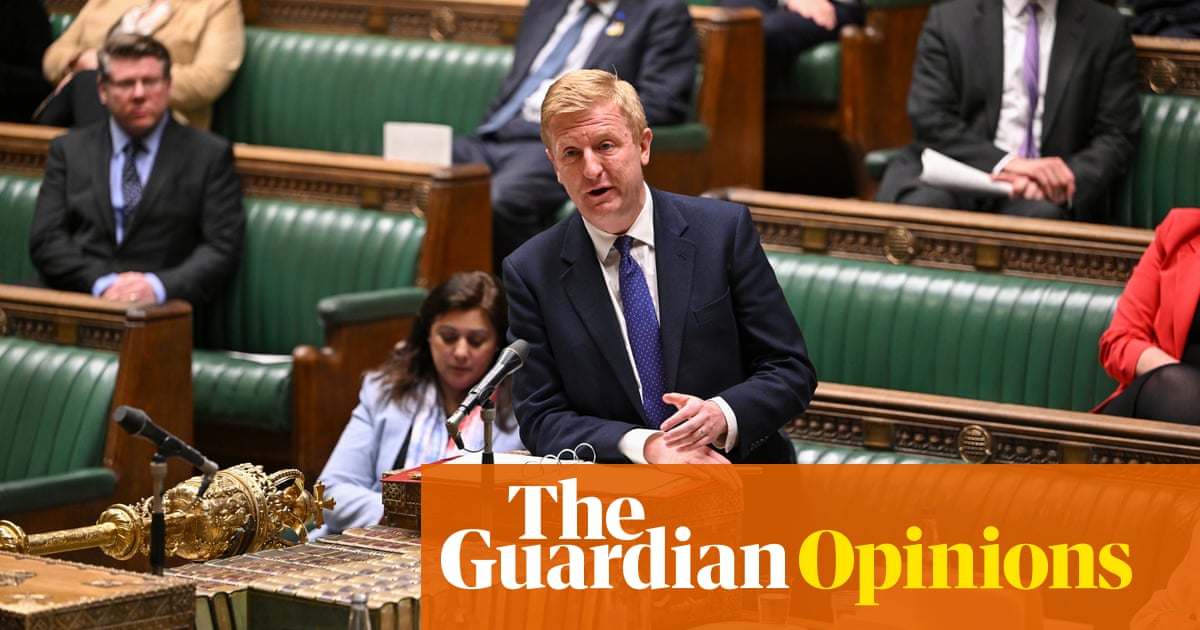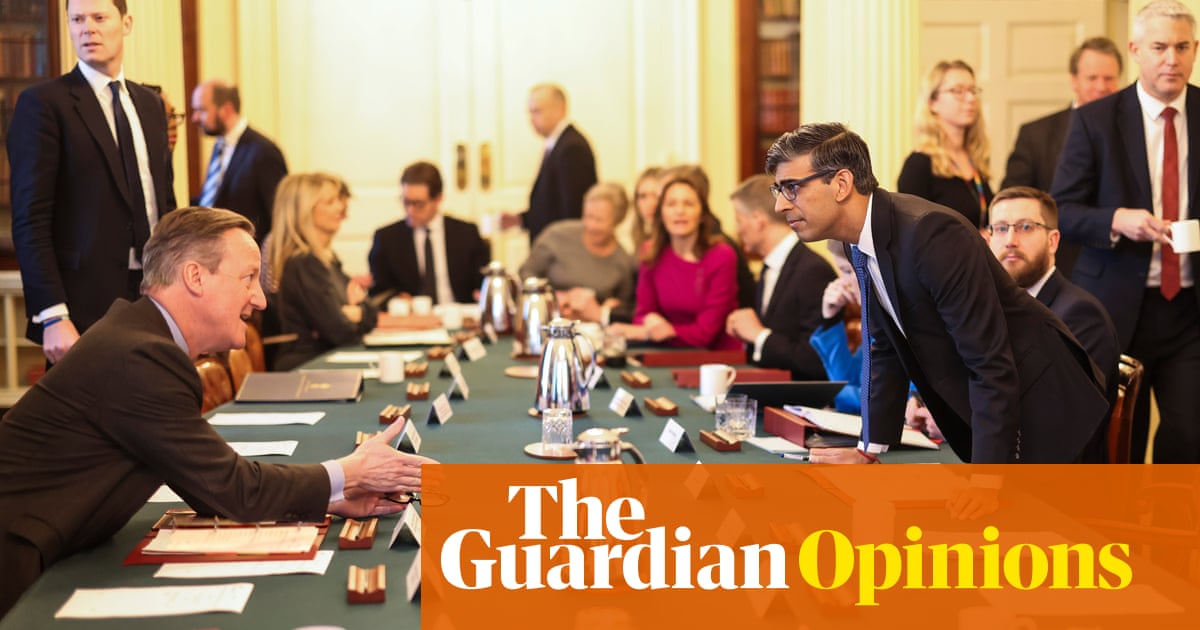Is mild man Dowden up to the threat of China’s cyber campaign? | Zoe Williams


The deputy prime minister’s statement on cybersecurity and China-backed attempts to undermine UK democracy had been briefed far enough in advance that MPs had had time to sharpen their insults. Iain Duncan Smith said Oliver Dowden’s announcement was like watching an elephant giving birth to a mouse. The SNP member Stuart C McDonald accused Dowden of taking a wooden spoon to a gunfight. Labour’s Chris Bryant called him “wilfully blind, and therefore dangerous”.
The inattentive observer might come away from the statement unclear on who posed the greater threat to our national security, Oliver Dowden or the Chinese.
The rest of us, of course, knew exactly who was the greater threat: because the more you hear about Chinese state-affiliated actors, the more competent and agile they sound. Nothing like that could be said of Dowden, who has a kind of understudy’s uncertainty. He’s a mild man who didn’t really sign up for this. He likes British values plenty, and would defend democracy as long as there was breath left in his body, but the last thing he wants to do is declare war on a superpower.
The exact nature of the Chinese threat, as established by the security services, is this: “Chinese state affiliated actors were responsible for two malicious cyber-campaigns: first, the compromise of the Electoral Commission between 2021 and 2022. Second, attempted reconnaissance activity against UK parliamentary accounts in 2021.” Both breaches were ultimately unsuccessful and, if anything, proved the resilience and ingenuity of parliament’s security measures. The closed records of the Electoral Commission were never breached, so all they saw were voter details that are open-access anyway. “Our political processes and institutions have not been harmed by these attacks,” he concluded. Phew, all good then. Move along, nothing to see, and even if there were, it was ages ago.
Should we be concerned, that this represents a gear shift in Sino-British relations, out of neutral into openly hostile? The shadow chancellor of the Duchy of Lancaster, Pat McFadden, referred to the American assessment, that “the cyber-threat from China is changing: it used to be about spying and influencing. Now it’s getting ready to disrupt essential infrastructure.” It doesn’t sound great, but this is no time for histrionics.
It was only when Dowden moved on to the measures the state had taken, having established the “systemic challenge … to the UK’s security and its values”, that it all started to sound a little dicey. They’ve banned TikTok and HikVision from government devices and buildings. So if you want to watch a 60-second video of a teenager doing an impression of their mum reacting to yoghurt, or install CCTV part-owned by a government that’s actively trying to spy on you, then you can do that on your own dime, government employees. For sure, this move is necessary. But is it sufficient?
The government has also announced sanctions against two individuals, along with one small company of fewer than 50 employees. Plus, the government has “significantly reduced China’s involvement in the UK’s civil nuclear infrastructure”. Holy moly. Forgot about the nuclear infrastructure. That would be a terrible thing for a hostile state to be involved in. They’re protecting university campuses from interference. Yikes. That moved fast; it feels like only yesterday that fleecing Chinese students was an integral part of the British university business model.
Nigel Evans, MP for Ribble Valley, stood up to raise his suspicion that “China, Russia and Iran are spreading wild conspiracy theories about the royal family”. Is that a nice thing to do? It is not. But at the same time, we are perfectly capable of spreading our own conspiracy theories. And it doesn’t even bear listing how many wild theories have come out of the US media. Shall we maybe try to focus a bit, Nige, on the matters of consequence?
Suella Braverman wants China bumped up to the enhanced tier of the foreign influence registration scheme, which was a relief. She has quite a bellicose way of expressing herself, and you never know exactly which way it’s going to go, between “keep a watching brief” and “declare war”. Angela Eagle decried the “tiny steps” that Dowden had taken. McFadden, the most courteous – desperate to prove that Labour’s frontbenches would do anything to cooperate where security was concerned – wondered whether we had any good guesses as to why the Chinese wanted to get into the Electoral Commission in the first place. Dowden replied: “Ultimately, it’s a matter for the Chinese to justify their motivations,” as if proud to announce that the finer workings of those rotters were outside the ken of the decent Englishman. But it would be good to know, though, wouldn’t it, deputy prime minister? Because when a state steps boldly out of the presumption of civility in a hacking operation for intel it could have got quite easily through www.gov.uk, you have to wonder what else they’ve got going on.
after newsletter promotion
This is what Chris Bryant spelled out: whatever we thought we knew, we couldn’t possibly be looking at “the sum total of all the Chinese state’s attempt to disrupt the UK’s democratic system”. How far has the rot spread? Should we be at all concerned about David Cameron’s relationship with Xi Jinping, which seemed pretty tight until five minutes ago?
Everyone relax; the US will be making their own statement later today. Hopefully they’ll know what to do, because we sure don’t.
Source link




